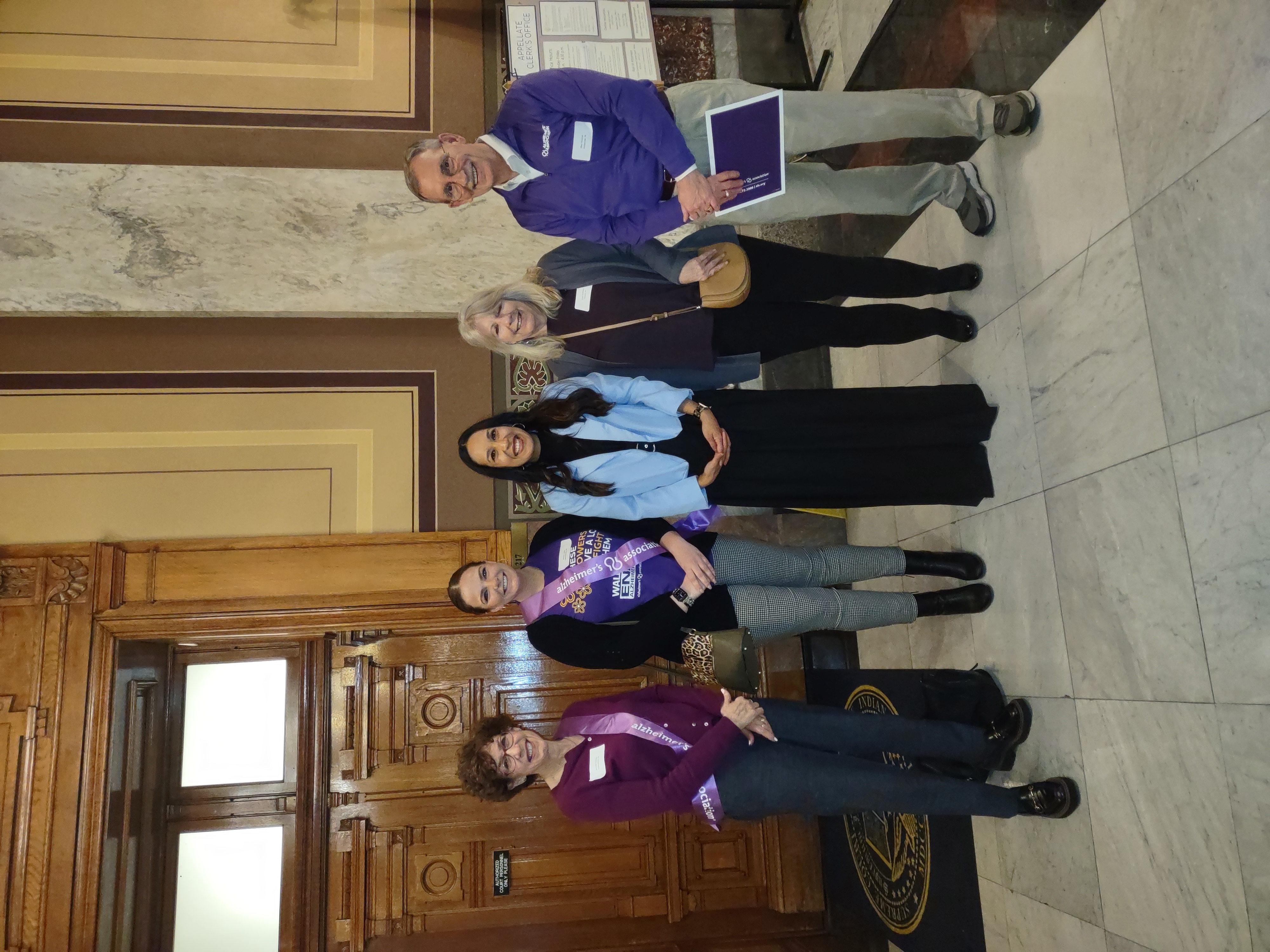Each month, we’re featuring an advocate who engages with policymakers to ensure priorities that improve the lives of people impacted by Alzheimer’s and all other dementia remain top-of-mind in Congress.
For Mike Hickman of Noblesville, Indiana, becoming an AIM advocate has provided him with knowledge and resources to help his friends and family navigate the challenges of this devastating disease. His Alzheimer’s advocacy journey is rooted in personal experience, persistence, and a growing passion to make a difference — not just for his family, but for every family facing dementia.
In 2009, Mike saw the challenges of this devastating disease for the first time when his father was diagnosed with vascular dementia. “That was my first exposure,” he said. “I really didn’t know much about anything.”
Neither Mike nor his siblings lived nearby as his father was experiencing symptoms. “My parents were retired in Mississippi, and I was living in Illinois,” Mike recalls. “Nobody was seeing them much, and obviously that can be a problem.”
His mother handled most of the caregiving, while Mike would visit every couple of months and check in with her regularly by phone. “I started waving the flag at some point,” he said, “and my sister and her husband started going down there to visit so there was more than just me.”
Mike’s father passed away in 2010, but unfortunately it wasn’t the end of his journey with dementia. In the years that followed, Mike would witness multiple friends and loved ones go through their own dementia journeys, including other family members, and a close friend’s father. “He was being treated the same way as my father was almost 10 years before,” said Mike. “I just said, ’You know, there’s something wrong with this.’”

In 2021, motivated to take action and work to right that wrong, Mike became an AIM advocate. Since then, Mike has become a dedicated voice in Indiana’s Alzheimer’s advocate community, regularly attending state advocacy days and traveling to Washington, D.C., for his first AIM Advocacy Forum last year. “The group here in Indianapolis, they’re pretty tight knit. The teamwork portion is awesome,” said Mike.
While he was first becoming involved in advocacy, Mike’s mission became personal again when his younger sister Beth began showing signs of cognitive decline.
During his first Advocacy Forum, Mike enjoyed making an impact with his fellow Indiana advocates, attending Hill meetings, and learning about recent scientific advancements and the latest research. “One of my favorite parts was talking with the researchers at the booth they had during the [Advocate Empowerment Expo],” said Mike. “I stood in line for quite a while to talk to them, because by this time my sister had been diagnosed with posterior cortical atrophy (PCA). There’s not a whole lot known about this form of dementia. It’s really unusual in how it affects people.”

Among his circle of friends and family, Mike now often shares what he’s learned and serves as a trusted source of knowledge on the dementia experience. “I appreciate being able to be a resource for people,” said Mike. “I always say, ’I’m not an expert, but here’s what I’ve seen.’”
“I’ve been way more involved with my sister, with my brother-in-law, trying to help them,” said Mike. “It took a while for her to get diagnosed, because quite frankly, I had just gotten started volunteering with the Alzheimer’s Association and didn’t know as much then as I do now.”

After multiple appointments, tests, and scans, she was diagnosed with posterior cortical atrophy (PCA). Her diagnosis journey spanned more than two years, a delay that cost her the opportunity to begin Leqembi treatment. That experience has become part of what fuels his advocacy today, particularly his focus on early detection.
“The sooner people will get diagnosed, the sooner we can have treatments for them,” said Mike. “That’s not the way it used to be.”
“Until you really sit and think about those 10 warning signs, and look at someone like my sister, you realize how hard it can be to see dementia early on,” Mike said. “But I think what’s going on now with the blood tests soon becoming available — that’s an incredible opportunity.”
Mike has recently come to understand that he doesn’t just advocate for others — he’s also advocating for himself. “All of this has coalesced into my decision to get myself tested and find out the real reason this 71-year-old is forgetful. I wanted to lead by example,” said Mike. “If I do have it, I can get treated and — who knows — maybe live long enough to beat it.”
Despite his own personal losses, Mike continues to advocate with a message of urgency and hope. “There are trials, and there are treatments now,” said Mike. “You’re almost remiss if you don’t take advantage of that opportunity. Because by the time you wait, it might be too late.”
Learn more about how you can join advocates like Mike to advance the mission.